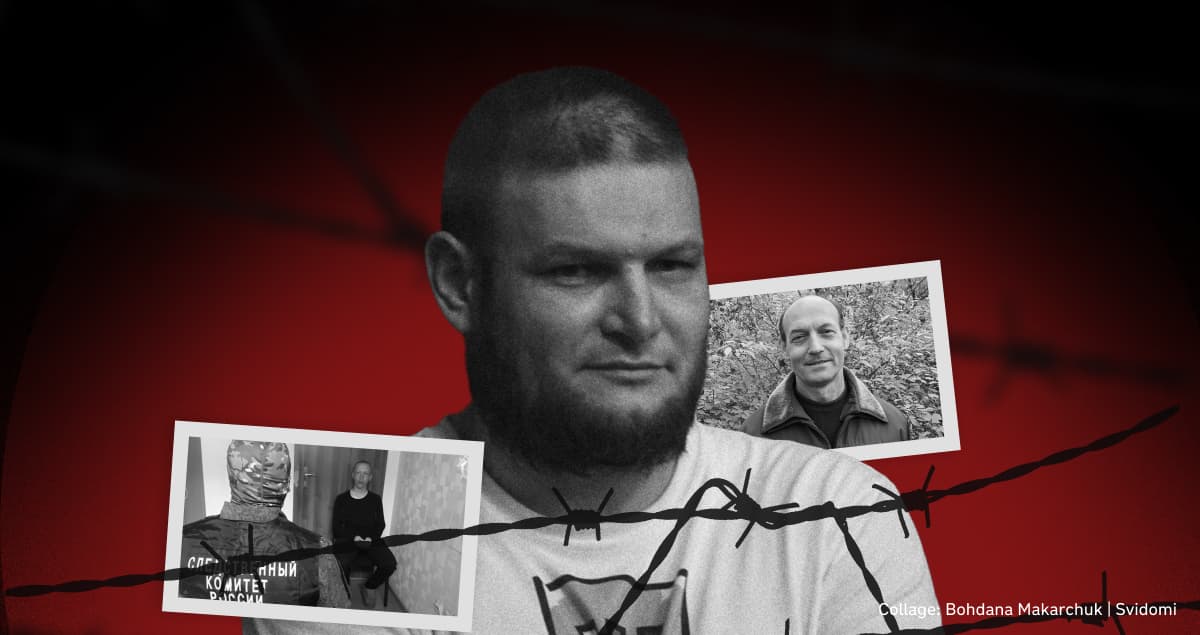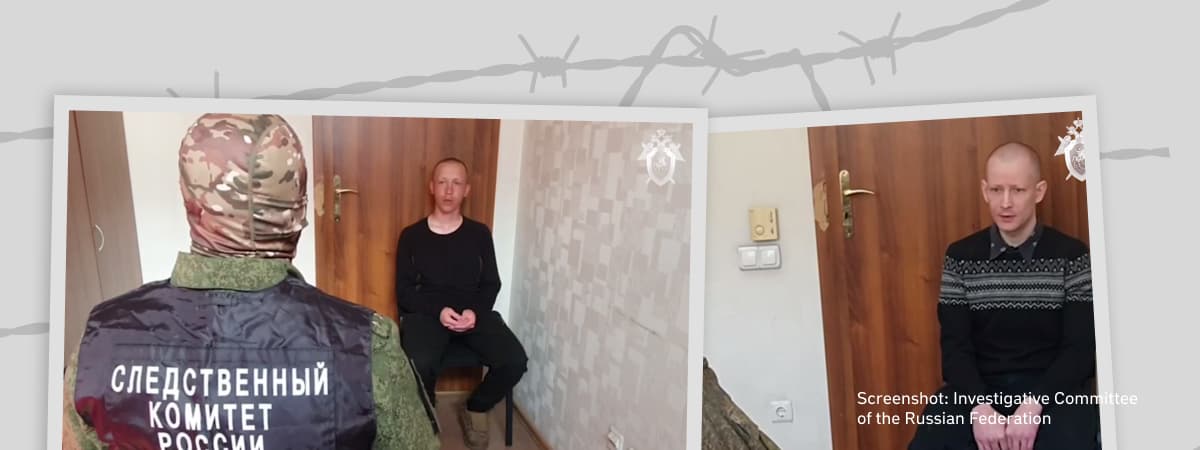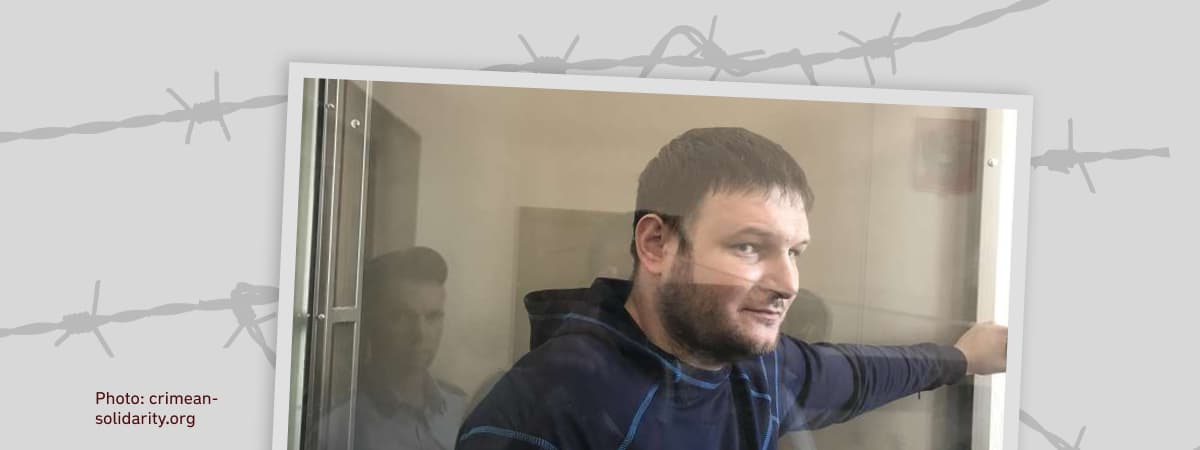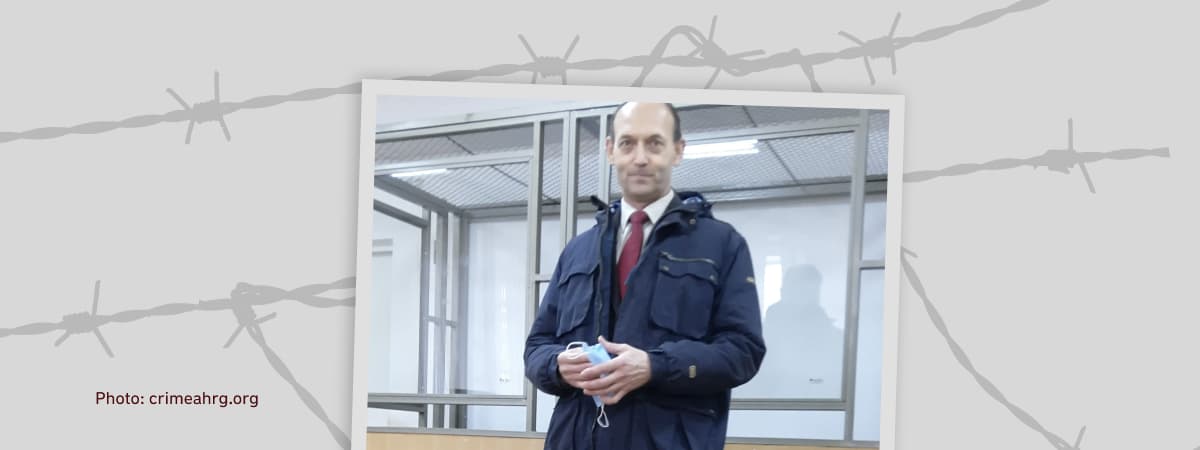~ Russia illegally detains 25,000 Kremlin prisoners

According to the Ukrainian Parliament Commissioner for Human Rights, Dmytro Lubinets, this is the number of civilians abducted by the Russian Federation.
The ZMINA Human Rights Centre has found that at least 21 prisoners require urgent medical care and may die unless they receive it.
During the full-scale invasion, the National Police began investigating the enforced disappearance of 8,800 people. Russian Children's Ombudsman Maria Lvova-Belova claims Russia has illegally abducted over 700,000 children from Ukraine.
The Media Initiative for Human Rights has identified about one hundred places where abducted civilians are held.
The Mission of the President of Ukraine in the Autonomous Republic of Crimea (Qırım) confirms 218 illegally imprisoned Ukrainian citizens, 133 of whom are Qırımtatarlar.
During the full-scale war, 3,235 Ukrainian citizens were returned to Ukraine, including 160 civilians.
So-called court in occupied Donetsk "sentences" two Ukrainian prisoners of war
The so-called supreme court of the illegal armed group “DPR” sentenced two servicemen of the 36th Separate Marine Brigade to 26 years and life "imprisonment".
The Russian Investigative Committee reports.

One of these men is Myroslav Chornomor, the commander of the 36th Brigade's intelligence unit. He was sentenced to life imprisonment in a special regime colony for allegedly killing civilians in Mariupol during the city's defence.
Another illegally convicted person is Oleksii Kazymov, commander of a mortar unit of the first separate battalion of the same brigade. He is accused of allegedly ordering his soldiers to fire mortars at temporarily occupied villages in the Donetsk region in 2019. The Ukrainian prisoner was sentenced to 26 years in prison.
The Geneva Conventions define such "trials" of prisoners of war as a crime.
Political prisoner Remzi Bekirov was transferred from prison in the Krasnoyarsk Krai of the Russian Federation
Political prisoner and Crimean Solidarity activist Remzi Bekirov was transferred from a prison in the Krasnoyarsk Krai of the Russian Federation.
Crimean Solidarity reports this, citing Bekirov's wife.
The political prisoner told his wife that they planned to take him out of prison on July 5. First, to a transit point in Krasnoyarsk.

According to Bekirov in his letter, he may stay there for a long time. Then, he will be taken to an unknown destination.
Remzi Bekirov is a citizen journalist who filmed searches and trials of politically motivated cases against residents of the temporarily occupied Crimea. He was detained on March 27, 2019, during mass searches of Crimean Tatars on the peninsula. In 2022, Remzi Bekirov was sentenced to 19 years in prison for allegedly participating in a terrorist organisation.
Earlier, the Federal Penitentiary Service of the Russian Federation refused to transfer him to a colony closer to the temporarily occupied Crimea.
In Russia, a court toughens the sentence of political prisoner Viktor Stashevskyi
On June 24, 2024, the Krasnodar Regional Court upheld the decision of the Apsheronsky District Court of Krasnodar Krai to transfer political prisoner Viktor Stashevskyi from a colony to a prison for three years.
This was reported by the Crimean Human Rights Group.
Viktor Stashevskyi is a representative of the Jehovah's Witnesses religious organisation. In 2021, he was sentenced to six and a half years for organising the activities of the Jehovah's Witnesses. He was sent to penal colony No. 9 in Khadyzhensk in the Krasnodar Krai of the Russian Federation.

According to the Jehovah's Witnesses organisation, the colony administration regularly imposed penalties on Stashevskyi for trumped-up reasons, some of which he did not even know about. The penalties became a formal pretext for detention in harsh conditions, where Stashevskyi spent most of his sentence.
Now, the man will be transferred to prison for three years to serve the remaining part of his sentence. Prison detention conditions are more restrictive and less freedom of movement.
On June 4, 2019, the Federal Security Service (FSB) searched at least nine homes of local believers in Sevastopol. A 52-year-old man, Viktor Stashevskyi, was detained, but the next day, he was released from the detention centre on his recognisance. A criminal case was opened against him under the article "Organising the activities of an extremist organisation".


